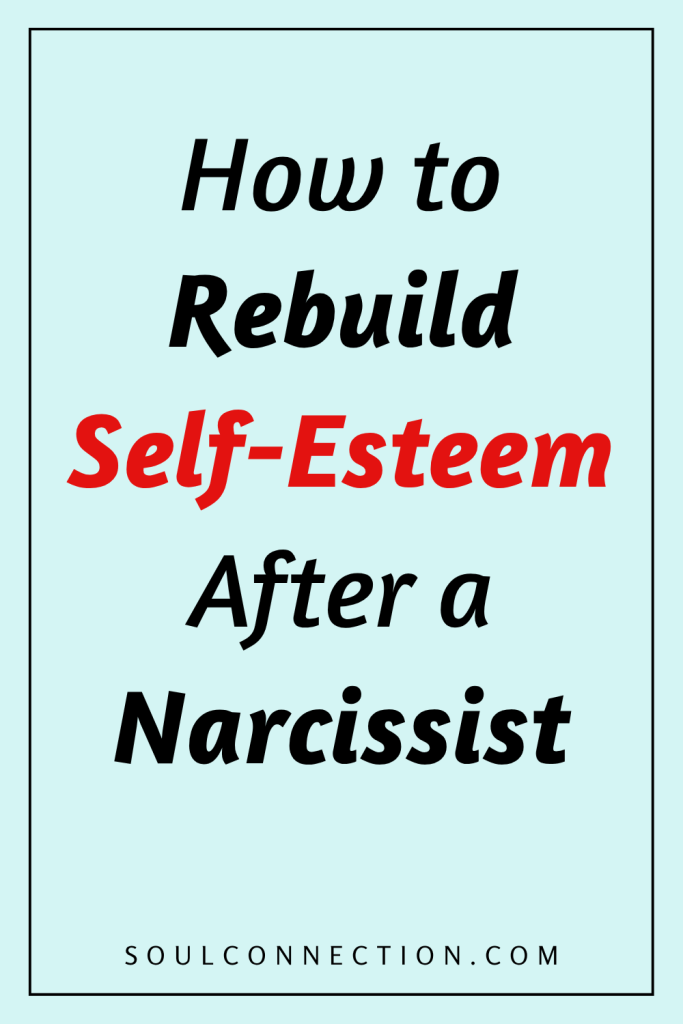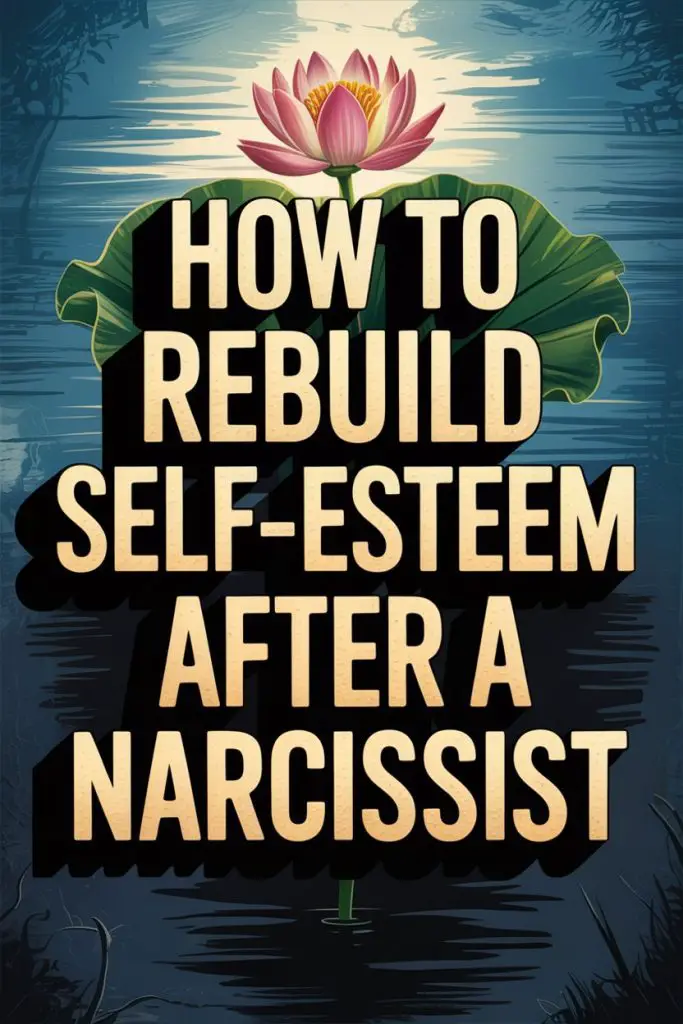Self-esteem after a relationship with a narcissist can feel like your favourite jumper that’s been through the wash one too many times—stretched out, threadbare, and seemingly impossible to make cosy again.
The good news: it’s not destined for the charity shop of your psyche.
Your self-worth can absolutely bounce back, and with a little grit (and a healthy dose of side-eye for anyone who tries to squash it again), you can rebuild something even better than before.
Let’s get to the good stuff, shall we?
Recognising What Got Lost Along the Way
Living with a narcissist is like trying to dance on a rug that keeps being pulled out from under you. Their constant criticism, gaslighting, and lack of empathy can leave you doubting your own memories, perceptions, and value.
Realising what’s actually yours and what belongs to the narcissist’s campaign of confusion is step one.
Those anxious thoughts that “maybe I am too sensitive” or “I must be the problem”—that’s the leftover residue of someone else’s insecurities, not your actual reflection.
It’s not about blaming yourself for having low self-esteem now. It’s about seeing with new eyes: “Oh, look, someone moved my confidence and replaced it with their own issues.”
Taking Back Your Narrative
Narcissists are champion storytellers—about themselves, about you, about what’s “real.” They’ll tell you who you are (usually not in a glowing review) until it starts to seep into your bones.
Time to become the editor-in-chief of your own story again.
Grab a notebook or open your notes app. Write out the things they said about you that hurt. Then, for each one, ask, “Would I ever say this to someone I care about?”
Chances are, you wouldn’t tell your mate she’s “dramatic” for having feelings or call your brother “selfish” for wanting a bit of attention.
Rewrite the lines. Instead of “I’m too needy,” try “I have needs, like every functioning human.” Instead of “I’m impossible to love,” try “I deserve kindness and respect.”
Sometimes, self-esteem is about reminding yourself you’re not starring in some villain origin story—unless it’s a Marvel movie, in which case, get paid.
Rebuilding Trust… With Yourself
After months or years of being told your instincts are wrong and your feelings are overblown, it’s normal to doubt yourself. Learning to trust those gut feelings again is the emotional equivalent of leg day at the gym—sore, awkward, but deeply necessary.
Start small. If you feel hungry, eat. If you feel tired, nap (or at least close your eyes and pretend you’re somewhere tropical).
Notice a flutter of excitement about a new idea or outfit? Go with it, just to prove to yourself that your likes and dislikes are valid.
When you sense a red flag in a new relationship or friendship, don’t just brush it off. You have every right to believe your inner alarms. They’re there for a reason—usually to stop you from “accidentally” dating another narcissist.
Practice listening, then acting, even in tiny ways.
Setting Boundaries Without Guilt
Boundaries around a narcissist are like invisible ink—ignored, erased, or outright mocked. Once you’re out, it’s tempting to swing wildly between “never letting anyone in again” and “letting everyone in so I don’t seem ‘mean.’”
Boundaries are not massive stone walls; they’re more like picket fences: friendly, but clear about where your garden ends.
Start with one clear boundary, with someone safe. Something as simple as, “I’m not available to talk after 8 p.m.,” or, “I can’t lend money right now.” Expect a little discomfort—it’s the sound of new muscles growing.
Notice how you feel after enforcing a boundary. Relief? Pride? Mild terror?
All signs that you’re doing the thing you were never ‘allowed’ to do: protect your own well-being.
Rediscovering What Actually Makes You Happy
Narcissists have a way of making their likes, hobbies, and preferences the Law of the Land. Maybe you used to enjoy hiking, but they rolled their eyes at “outdoorsy types.”
Maybe you stopped wearing your favourite colour because they made a snide remark.
Now’s your chance to try all the things you weren’t ‘allowed’ to enjoy.
Pick something small: a hobby, a song, a food, a style. Reclaim it, or try something entirely new—salsa class, knitting, aggressively loud socks.
The aim isn’t to be “good” at it; it’s to remind yourself that joy is yours to find, not something at the mercy of someone else’s approval.
Don’t be surprised if the first attempt feels odd. Enjoyment, after emotional hibernation, sometimes needs to be coaxed out of hiding like a shy hedgehog. Keep inviting it in.
Surrounding Yourself With People Who “Get” It
After a narcissist, you might notice your radar for self-absorbed types is a bit… off. That’s normal. Their brand of manipulation is subtle, and part of their charm is convincing you that “they’re the only ones who understand you.”
Time to assemble your own Avengers. People who don’t drain you, who listen, who make space for your feelings—these are your people now.
Don’t be afraid to seek out support groups, therapy, or online forums. Many people have walked this road and are more than willing to cheer you on. Even one friend who gets it can make all the difference on rough days.
Learning to Spot Red Flags (and Actually Walk Away)
One sneaky side effect of narcissistic relationships? Becoming a world-class “explainer.” You rationalise, excuse, and justify other people’s bad behaviour. After all, you were trained by the best.
Time to hang up your explainer hat.
If someone’s behaviour makes you feel small, confused, or anxious, it matters—no matter how polite they seem. Emotional health means not needing to decode every comment or endure double standards.
No more detective work. If things feel “off,” trust it.
Walking away doesn’t require a dramatic speech. Sometimes it’s just deleting a number, muting a chat, or quietly excusing yourself. The right people won’t need endless explanations for why you value yourself.
Giving Yourself Radical, Relentless Compassion
Self-esteem isn’t about “fixing” yourself because you’re broken; it’s about remembering you were never broken in the first place. A narcissist’s greatest trick is convincing you that their cruelty is your burden to bear.
Compassion here isn’t just a bubble bath and a scented candle (though, by all means, go for it). It’s talking to yourself as you’d talk to a friend who just went through a car crash—gentle, encouraging, never blaming.
Bad days will come. Triggers will pop up, sometimes when you least expect them.
Instead of berating yourself for feeling off, try, “Of course I’m struggling. That was a lot. I’m allowed to take my time.” No one gets over emotional whiplash overnight.
Reclaiming Your Voice
Narcissists love to finish your sentences—usually incorrectly. They’ll tell you what you think, feel, and even what you’re going to say next (spoiler: it’s always something they don’t want to hear).
Now’s the time to speak up, even if your voice shakes. Start small. Share your opinion in a group chat. Disagree with a friend over which pizza topping reigns supreme. Stand up for yourself, even if you feel wobbly.
Every time you speak your truth, you reinforce that your voice matters. The goal isn’t to never feel nervous again, but to get comfortable taking up space—even if it’s just enough for a strong cuppa and a biscuit.
Trusting the Process (and Your Progress)
Self-esteem doesn’t come roaring back with a single pep talk. Some days will feel like victory laps; others, you’ll wonder if you’ve made any progress at all.
Healing isn’t linear. Some triggers will zap you out of nowhere, and old patterns might creep up when you’re tired or stressed. That doesn’t mean you’re back at square one—it means you’re human.
Celebrate every small win, even if it’s just catching yourself before apologising for no reason, or noticing when you stand up a little taller. Every bit of progress counts, and each step is a testament to just how resilient you really are.
Moving Forward With Fierce Self-Love
Healing after a narcissistic relationship isn’t a tidy Hollywood montage. It’s more like a series of messy, brave experiments—testing your new boundaries, reconnecting with joy, and standing up for your own story.
Self-esteem is built one brick at a time.
Sometimes those bricks are therapy sessions or teary chats with friends; sometimes they’re silly socks and solo movie nights. All of it counts.
Above all, remember: your worth was never up for debate, no matter who tried to convince you otherwise.
The world needs what only you can offer—sharp wit, scars and all. Anyone who says differently can kindly see themselves out.
Dust off that favourite jumper. Wear it with pride. The best bits of you have only just begun to shine.


